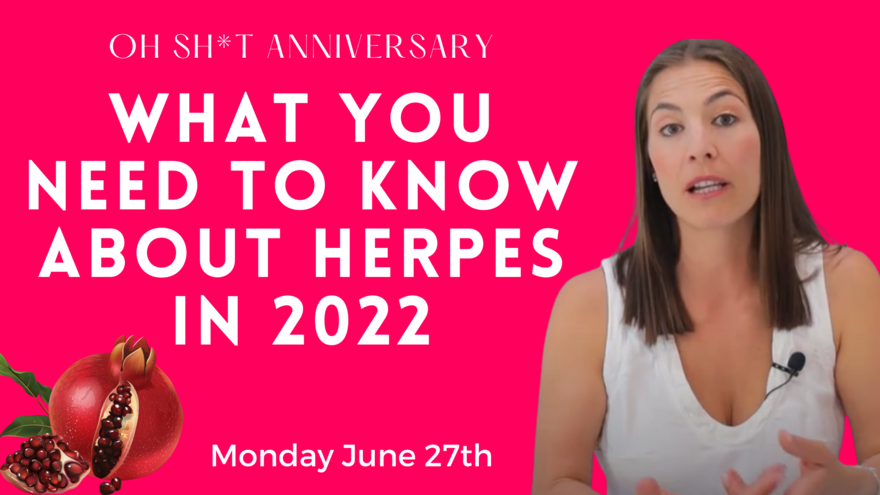What You Need to Know about Herpes in 2022 - Oh Sh*T Anniversary Pt.2

As I've mentioned before I've had herpes for a long time. I was diagnosed with HSV1 oral in 2003 and then with HSV2 genital in 2011. So it's safe to say I've had my ups and downs as well as I've dealt with lots of stigma over the decades.
I think back in 2003 and in the early 2000's herpes was something that really wasn't talked about. I mean if you go cold sores you most likely didn't know they were contagious and considered herpes. Back then, we for sure didn't associate the idea that oral herpes could become genial herpes if we used our mouth on someone down there. I actually taught sex ed back in the late 90's through Planned Parenthood so I was educated when it came to STDs and STIs. Yes, herpes was something that we covered but it still wasn't something that was common. I think back when I was doing this chlamydia was the most common. My point is that to my knowledge herpes wasn't really on the radar as it is now. But yes, there was still a huge stigma of how you got it and who got it. I think we also have to remember that the 90's was the HIV/AIDS era so herpes didn't get a ton of attention.
Now moving forward to 2022 I'd say there's a lot more attention and awareness of herpes. Yes, it's still a laughing point in a movie or as a joke among friends but in general I think it's becoming more familiar.
There are things that I do want to bring to our attention that I come across daily. There are still some important facts that are not being talked about but can really make a difference when we know them.
- HSV1 is now moving down there. Back in the day we all assumed that if you had a cold sore then that was HSV1 and if you had genital outbreaks then it was HSV2. Well that could have been because we might not have been testing people to see what type they had and so the diagnosis was just assumed what type you had. According to the WHO, there are 3.7 billion or 68% of the world population who are infected with HSV1. Most HSV-1 infections were oral; however, between 122 million to 192 million people were estimated to have genital HSV-1 infection. What this means is that HSV1 is becoming more prominent genitally so genital herpes doesn't just mean its HSV2 anymore.
- If you don't have herpes you've probably been exposed to it. I can remember thinking that if you make wise decisions then you'll not put yourself in a situation or expose yourself to herpes. Johns Hopkins says that by the time you are 50, 90% of the population have been exposed to herpes. What does this mean in 2022? That we can't live our lives thinking that if we don't have herpes that we'll never get it. Or that we've never slept with that type of person or that you'd never known anyone with it, when 90% of the population has come into contact with it. Also what this means to me as a mom is that I can't protect my son from not getting it. Yes, I do what I can personally but I'm not the only one in his life that will expose him to the HSV virus.
- 90% of people with genital herpes won't ever be diagnosed. This is a shocking number when I hear this. 90% of the people with genital herpes will never be diagnosed? That makes me think that the statistic saying 13% of the population is living with HSV2 is really low if 90% don't know they have it. The reason why I want to bring it to our attention is that it's super important to have your partner get tested. There is a huge chance that they have some type of herpes and don't even know it. I mean with 80% of the population having herpes there is a really good chance that someone who says they don't have it end up having it.


0 comments
Leave a comment
Please log in or register to post a comment